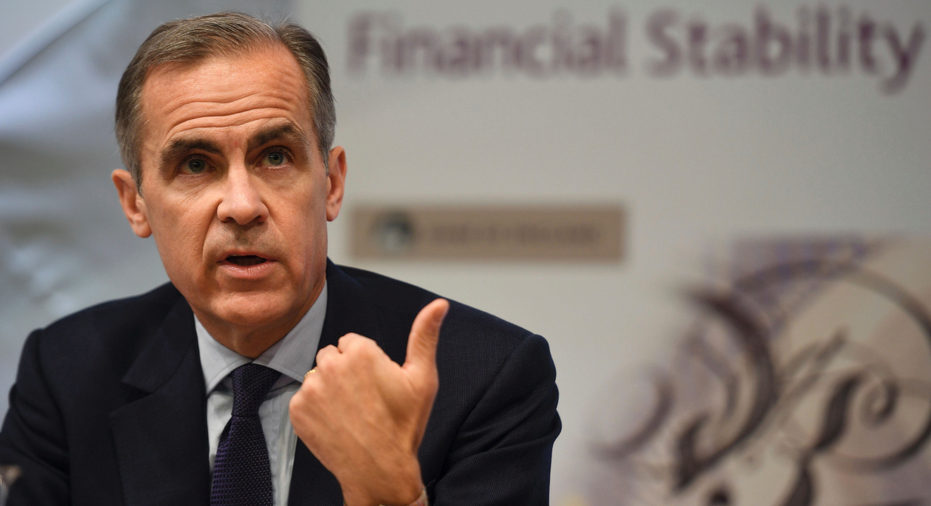UK banks seen more resilient to shocks _ even 'hard Brexit'

LONDON – Britain's most important lenders are strong enough to withstand a "disorderly Brexit" and could even weather an acute recession, the Bank of England said Tuesday.
While concluding that they would still have enough capital to provide credit to households and businesses if Britain crashes out of the European Union without a deal, the central bank warned that the picture wouldn't be so clear-cut if a so-called 'hard Brexit' happens during a sharp global recession.
In its annual stress test of the sector, the central bank said the country's seven biggest lenders, such as Barclays and Lloyds Bank, were "resilient" overall to adverse scenarios, including deep recessions at home and abroad and hefty falls in the price of assets
"Despite the severity of the tests, for the first time since the bank began stress testing in 2014, no bank needs to strengthen its capital position as a result," Bank of England Governor Mark Carney said.
Stress tests have become a key policy instrument of central banks since the global financial crisis. In Britain's case, many of the country's banks, including Royal Bank of Scotland, had to be bailed out by taxpayers at the height of the global crash in 2008 because they weren't strong enough to cope with the shock.
In what is effectively a war-gaming exercise, the Bank of England tested banks' ability to withstand a recession that is even worse than the one that followed the global financial crisis nearly a decade ago.
Included in the test was the simulation of a 2.4 percent fall in global GDP, a 4.7 percent contraction in Britain, a 33 percent crash in house prices and a further 27 percent slide in the pound, which would take it well below one-to-one with the dollar.
The Bank of England estimated lenders, which also includes HSBC, Standard Chartered, the British arm of Spain's Santander and Nationwide Building Society, would incur losses of around 50 billion pounds ($65 billion) in the first two years of the stress, the scale of which would have wiped out the capital base of the sector ten years ago. Since the crisis, banks have been forced to boost their capital buffers, which they can draw upon in case of a financial shock to meet the credit needs of individuals and businesses.
The central bank's Financial Policy Committee, which monitors the stability of the banking system, also concluded that banks can continue to support the economy if the country experiences a "disorderly" exit from the EU.
"We're putting our money where our mouth is," Carney said. "This is not a good scenario; it's a scenario that we are all trying to avoid because it has some material economic costs even if financial system continues to function through it."
Britain is due to leave the EU in March 2019 but negotiations over the post-Brexit relationship have stuttered, raising fears that tariffs and other restrictions will hit British trade with the EU.
Carney warned that losses to the banking system would "likely be more severe" than in the test if a "disorderly" Brexit accompanies a sharp global recession and further fines, such as those the banks have faced in past scandals involving the mis-selling of financial products.
"Banks would likely need to restrict lending to the real economy, worsening macroeconomic outcomes," Carney said.
In light of the uncertainty surrounding Brexit, Carney said the FPC will assess in the first half of next year whether banks will need to stash away more of their capital to protect against risks — on Tuesday the Bank of England confirmed it was raising a special buffer to 1 percent.
However, he said the central bank's main assumption is that the relationship between Britain and the EU will remain "highly cooperative."
Carney has backed Prime Minister Theresa May's proposal for a transition period after Brexit day, whereby Britain continues to trade with the EU largely under the same terms as now. He said a period of 18-24 months is the "minimum necessary" and that view is "increasingly appreciated on both sides of the Channel."
Carney has made the case for an agreement soon, certainly by the first quarter of next year. The discussions on a transition cannot begin until the EU is satisfied with progress on three key issues, including the divorce payment, citizens' rights and the Irish border. Without a transition, there are fears many firms will start implementing contingency plans, such as relocating activities into Europe.



















